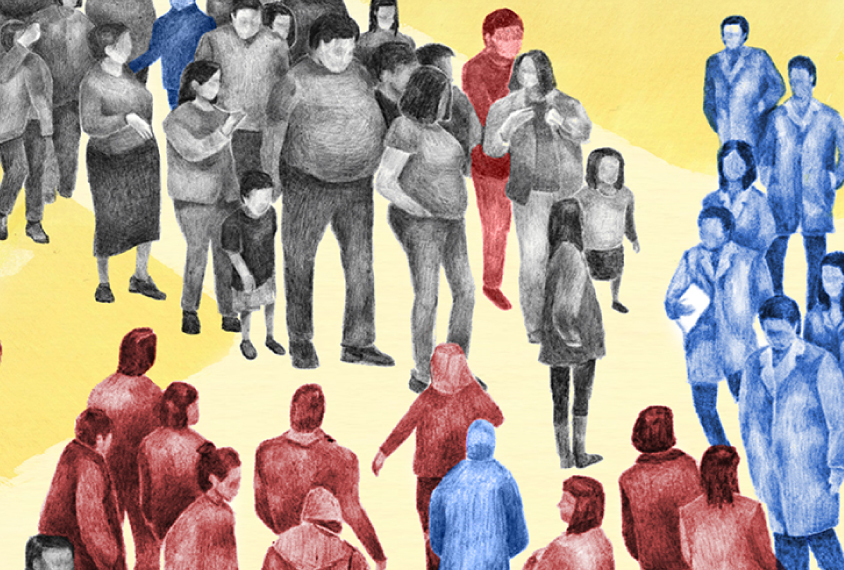The Autistic Researchers Committee, appointed by the International Society for Autism Research (INSAR), aims to integrate autistic members into INSAR programs, foster career development for autistic researchers and promote the inclusion of issues important to autistic people in INSAR meetings and autism research across multiple disciplines.

Autistic Researchers Committee
From this contributor
Letter to the editor: Researchers must bridge disconnect at ‘autism crossroads’
Two groups of researchers respond to Spectrum’s article about the power struggle among researchers, self-advocates and families, calling on their autistic and non-autistic colleagues to work collaboratively and promote equity in autism research.
Explore more from The Transmitter
Frameshift: Raphe Bernier followed his heart out of academia, then made his way back again
After a clinical research career, an interlude at Apple and four months in early retirement, Raphe Bernier found joy in teaching.

Frameshift: Raphe Bernier followed his heart out of academia, then made his way back again
After a clinical research career, an interlude at Apple and four months in early retirement, Raphe Bernier found joy in teaching.
Organoid study reveals shared brain pathways across autism-linked variants
The genetic variants initially affect brain development in unique ways, but over time they converge on common molecular pathways.

Organoid study reveals shared brain pathways across autism-linked variants
The genetic variants initially affect brain development in unique ways, but over time they converge on common molecular pathways.
Single gene sways caregiving circuits, behavior in male mice
Brain levels of the agouti gene determine whether African striped mice are doting fathers—or infanticidal ones.

Single gene sways caregiving circuits, behavior in male mice
Brain levels of the agouti gene determine whether African striped mice are doting fathers—or infanticidal ones.
